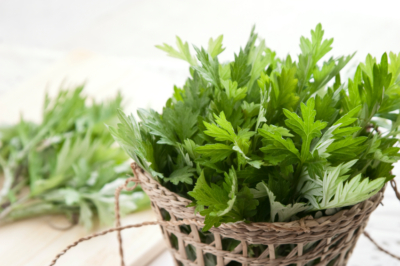Mugwort – a lesser-known herb for the kitchen. If you harvest the herb yourself, you quickly ask yourself what to do with so much mugwort. Since it has a strong seasoning power, only small quantities are needed for cooking. The rest is best to dry.

To consider beforehand: the right time to harvest.
Before it comes to drying, the mugwort should be harvested at the right time. The best time is just before the onset of flowering . The flower buds should already be visible, but still in the closed state.
How to dry the mugwort!
After the mugwort has been harvested along with its inflorescences, proceed as follows:
- Shake off or remove dirt particles (do not wash them off – this will cause
- essential oils are lost)
- gather them into small bundles
- hang the bundles in an air-dry and shady place
- drying takes between one and two weeks, depending on the location
- Alternative: dry in a dehydrator
Caution. Even if it would go faster: Mugwort should not be dried in the sun. This turns the leaves brown, the herb overheats and oxidizes, and as a result, important ingredients or aromas are lost.
After drying, it is recommended to remove the flower buds, leaves and thin stems from the main thick shoot. Then the dried parts of the plant are put in a sealable container and stored in it. Ideally, the mugwort should go into a brown or purple jar and be sealed airtight.
Possible uses afterwards
The dried mugwort can be used to flavor dishes. It is good for fatty and heavy dishes such as meat dishes for example roast goose and duck at Christmas, for legumes, potatoes and cheese. It makes these dishes easier to digest.
Furthermore, mugwort is suitable for tea as well as for smoking. In the past it was used for smoking and is said to have a protective effect. Whether you believe in it or not, it definitely makes for a great room scent!
Tips & Tricks
Dried mugwort has an enormous seasoning power. Therefore: Use sparingly! This is also recommended for the reason that mugwort is toxic in high doses.

